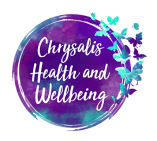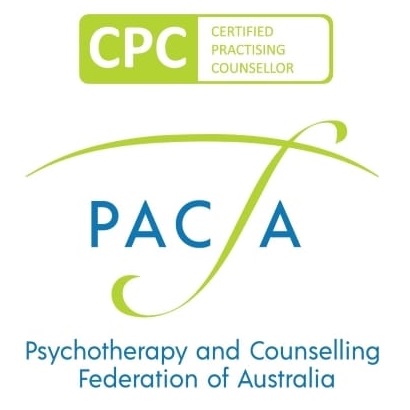There are few things more corrosive to a relationship than resentment.
You know the feeling resentment gives you when you feel that someone has let you down: that simmering, sour, irritable feeling in the pit of your stomach, a deep sense of unfairness. Resentment appears when you feel unacknowledged, unheard, feel unfairly treated, taken advantage of, or demeaned in some way.
There is a real sense of powerlessness to redress the situation. It is often said that resentment is like drinking poison and waiting for the other person to die. Ultimately it’s the one who holds the resentment that suffers most. Resentment can make you feel like you are in control, when in fact it is very disempowering. Resentment underlies a number of problems – lack of intimacy, emotional detachment, behaviours and emotions. Within intimate relationships it can ultimately make you feel that you have fallen out of love with your partner.
Recognise Resentment
As Peter Ladd explains in his book, “Relationships and patterns of conflict resolution”, resentment can be referred to as “civilised anger”, whereby those who avoid conflict in their relationships use resentment as a way of releasing frustration or anger without directly addressing their issues, or acknowledging that they exist.
The problem with this is that the frustration is not really released openly, it is still held within the body, where negative emotions can build up. If you find that your communication is loaded with sarcasm, an obtuse remark, or a snarky edge which is intended to convey your displeasure, be aware you may be carrying resentment.
If you find that you are ‘stewing’ on and repeatedly replaying a negative incident, this compounds resentment. If you find yourself snapping and getting angry at something or someone completely out of context to the situation, this is projected anger that has not been directed in the appropriate manner, and resentment may be the underlying cause.
What makes resentment so destructive?
Resentment, being more of a mood than an emotion, can often feel less intense than anger. It can persist, hidden below the level of consciousness, building in a slow escalation over time if problems and issues continue to go unaddressed and unresolved. It is a passive way of showing your displeasure at someone else’s actions (or lack thereof), and this contributes to the feeling of powerlessness that can accompany resentment. Bottled up feelings of anger, sadness and disappointment feed resentment.
It’s a big indication that your needs have gone unmet, time and time again.
Anger is tied into resentment, but unlike healthy anger, which is a spiked reaction to a specific trigger, and eventually dissipates after being expressed, resentment anger is held internally without being expressed. There are two issues here. The first is around having your needs met. It is well worth exploring your relationship with getting your needs met in the past if you are struggling with resentment.
Were your needs as a child heard and validated? Did you learn to sideline your needs because you received negative feedback from your caregivers, or they consistently denied you your needs?
Do you know what your needs are? If you wish to further your exploration and self-discovery around needs, the Centre for Nonviolent Communication offers a good list to get started.
If you struggle with resentment the other issue worth exploring is anger. For example, if you were given subtle (or not-so-subtle) messages in your childhood that displaying anger was not tolerated or acceptable, there may be a belief that anger and conflict are bad, and can only result in making things worse.
Therefore your belief may be that it is better holding in the anger rather than finding ways of expressing it in a healthy way. Rarely in childhood are we taught how to express anger in an appropriate manner. Long-standing resentment between people can corrode love, affection and compassion, creating emotional distance.
Possibly even more importantly than that, it blocks vulnerability, the place where intimacy and authenticity like to blossom. It’s incredibly difficult to get recover a relationship where there are layers and layers of resentment, though it’s not impossible. If you have constantly returning feelings of bitterness or misery over annoying or upsetting memories, you will find resentment that needs working on.
Recovery starts with small steps…
The way I like to look at resentment is that it is a call to you to seek internally what you are not getting what you need in your relationship. It is first and foremost an internal exploration. This also involves practicing not placing blame with the other person. That’s why I said previously, reducing resentment is hard! But not impossible. It’s really about re-gaining a sense of inner authority and empowerment. Here are some practical ways to get past resentment, and even avoid it in the first place.
Validate and acknowledge how you are feeling
If you are hesitating speaking up because you are afraid it will cause conflict and further emotional distance, find a way of speaking your truth. Honesty can be easier to communicate than trying to be assertive, which can often end up coming across as being aggressive.It can be a huge confidence booster to find the courage to speak your truth, and this is the point where resentment starts to diminish, and connection with the other person can start to grow again.
Practice stating your needs in small steps
This involves acknowledging you have needs, and knowing what they are. This self-validation encourages you to feel more confident expressing yourself in your relationships (in a gentle way), and gives you a huge boost of self-esteem. Along with the needs list from CNVC, Gary Chapman’s Book The 5 love languages, helps couples to identify what their relational needs are and how to go about getting them met. If you have a partner that is not receptive to this, this is something that can be worked through in counselling, and where solutions can be sought that benefit both of you. Negative thought patterns that may surface when you think about doing this may include: “I don’t deserve…”, “my needs are not important”, “expressing my needs seems weak”. Don’t try to ignore or suppress what comes up, rather choose to correct the thought in that moment so that “I don’t deserve” becomes “I am absolutely worthy”; “my needs are not important” may become “I have human needs that I respect and value”; and “expressing my needs seems weak” becomes “expressing my needs is a courageous way of building my self confidence”.
Forgiveness
This can be an extremely challenging concept for some people. It is not about minimising, excusing or forgetting a wrong that someone has caused you, especially when there was serious harm done. Nor is it necessarily about reconciling with this person. Forgiveness is a conscious decision to let go of the anger, hurt and resentment that someone’s action has caused you. Whether the offence was intentional or not, YOU are the one holding on to the negative feelings associated with the event. Instead of holding on to past judgements and hurt (which you can’t change), make a choice to let them go and do things differently from now on. Negative thought patterns that may surface when you think about doing this may include: “I want to hold a grudge to make you pay”, “You don’t deserve to be forgiven” “I want you to feel the pain that I am feeling” Again, the idea is not to ignore the thoughts and self-talk that surfaces, rather choose to change it to a thought that can start to make positive change.
Communication style
Conflict can be a productive process, rather than being viewed negatively. Looking at it this way can feel empowering, and encourages you to seek ways to repair the relationship. A way of expressing how you are feeling without placing blame is the “I feel …… when you……” approach. Eg. “I feel really upset and worried when you don’t call me to let me know you’re going to be late home”. Learn the other’s communication style, and learn your own. Is there yelling and fight mode, or withdrawal and silence? Your partner cannot read your mind. Even though they might know you the best, they cannot just know what you need in any given situation. Ultimately it comes down to taking personal responsibility for the part you play in conflict or arguments.
Tapping
Tapping is a process that stimulates acupressure points on specific areas of your body which encourages the brain, and then the nervous system to calm and soothe so that eventually your reaction to triggers becomes less intense. This can be an extremely effective approach when you have memories that spike anxiety or worry, and resentment! It enables you to approach a problem from a much calmer and relaxed place.
If any of these feel like obstacles that are too difficult to overcome, or you think you need professional assistance to gain clarity or communication strategies around your situation, call me at Hills Complete Counselling for your free 20 minute consultation in order to work out the best way forward for you. Click on the link below.
About Kate
Kate is a counsellor and energy healer based in Sydney’s Hills District. She has identified a common thread amongst certain clients; and that is that they appear to suffer from similar physical symptoms and ailments, along with a history of unresolved trauma. These can have massive and devastating impact in all areas of a person’s life. Kate supports her clients on their healing journey in a holistic sense. This involves helping to process and resolve trauma in the body, help clients choose appropriate nutrition, and address lifestyle issues and old belief patterns that no longer serve them. Clients report feeling calmer, more in control, and with greater self-awareness able to make self-affirming life decisions from their core of inner knowing.
Counselling can be life-changing and transformative. It provides a safe, compassionate and non-judgemental space to explore issues that are important to you. If you have been unsure about counselling, give Kate a call to find out if it’s the right step for you.






